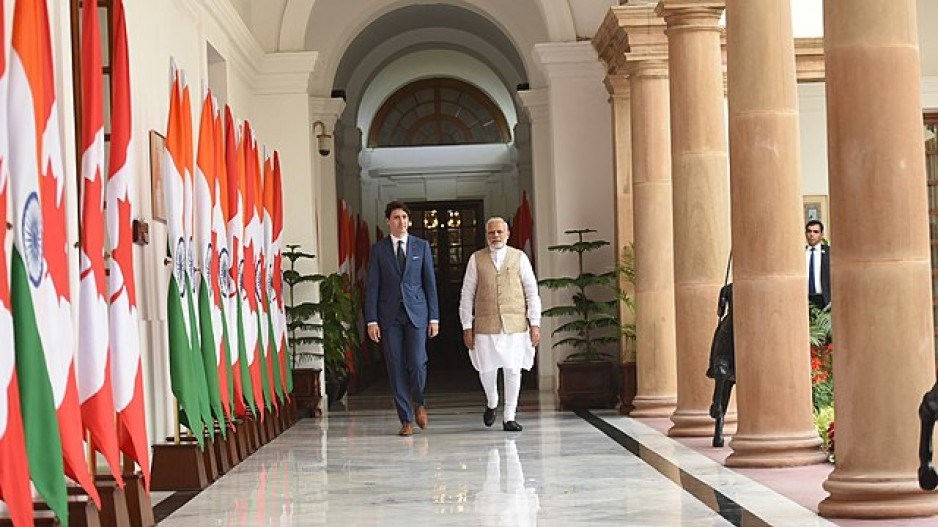Business leaders continue to grapple with the economic uncertainty fostered by the rift between the Canadian and Indian governments, saying the suspension of free trade talks hurts both sides.
Thesouringrelationship marks a major hurdle to boosting bilateral trade beyond last year's $20.9 billion in goods and services and deters Indian students from studying in Canada, commercial groups say.
“Stopping any trade discussion or trade negotiation doesn't make sense. How will that help us as a country?" asked Satish Thakkar, chairman of the Canada India Foundation. Canada halted trade treaty talks on Sept. 1.
“This is the biggest fall in Canada-India relations since the 1970s."
Relationsbetween the two states rapidly deteriorated after Prime Minister Justin Trudeau told Parliament on Sept. 18 that New Delhi may have been involved in the killing of Canadian citizen Hardeep Singh Nijjar, a Sikh independence activist.
In response, the Indian government suspended visa services for Canadian citizens — partially restored last month — and revoked diplomatic immunity from Canadian diplomats, prompting two-thirds of them to leave the country.
The trade potential between Canada and India — the world's most populous country and fastest growing large economy — remain largely unrealized, observers say. Negotiations on the would-be Comprehensive Economic Partnership Agreement launched in 2010 before foundering in 2017. They resumed in 2022, with the initial goal of reaching a deal this year.
The Asia Pacific Foundation of Canada says the treaty could increase two-way trade by up to $8.8 billion by 2035 and result in a Canadian GDP gain of up to $5.9 billion. Canada's mineral, agriculture, chemicals and wood product sectors could all see sizeable export boosts.
“There is a lot of complementarity between what Canada has and India needs," said Victor Thomas, CEO of the Canada-India Business Council. "IT services, for example — a huge growth in very specific talent that, again, complements our economy that India can provide.
"This relationship is extremely important," he said. "But businesses like predictability and stability."
The frayed relations mean "uncertainty prevails," sowing doubt among some Indian students who were considering post-secondary education in Canada, said Thakkar. At 40 per cent, that talent pool makes up the largest portion of the country's international student body.
"They are becoming the main source of the workforce, and entrepreneurs also. We come across international students who then got (permanent resident status) and today own multiple businesses," Thakkar said, noting Canada's aging population.
“Back home, our family and friends say, 'I was thinking of sending our son or daughter to Canada, but we are rethinking now.'"
The current lack of Canadian diplomats in the subcontinent only adds to study permit application woes, he said.
This report by The Canadian Press was first published Nov. 6, 2023.
Christopher Reynolds, The Canadian Press




